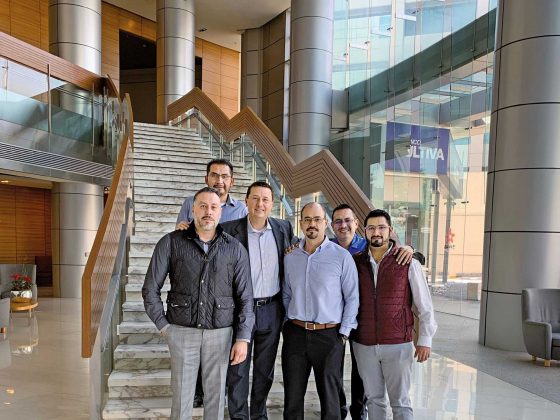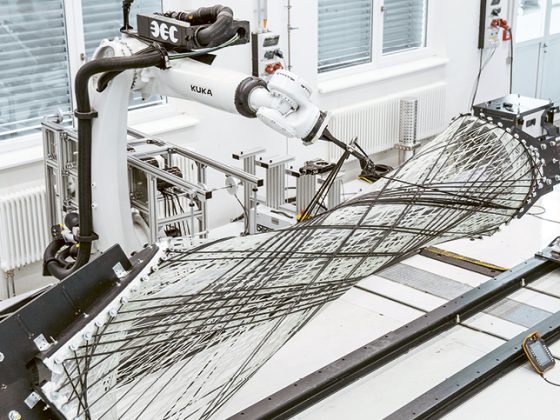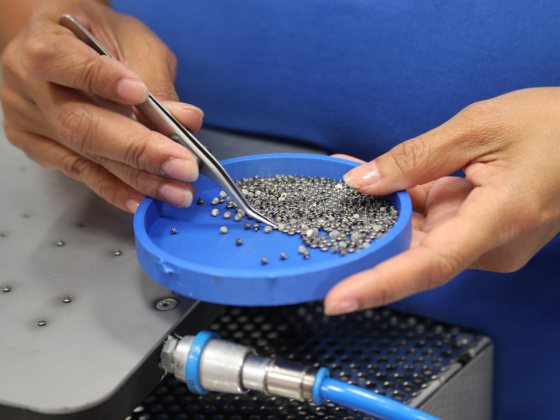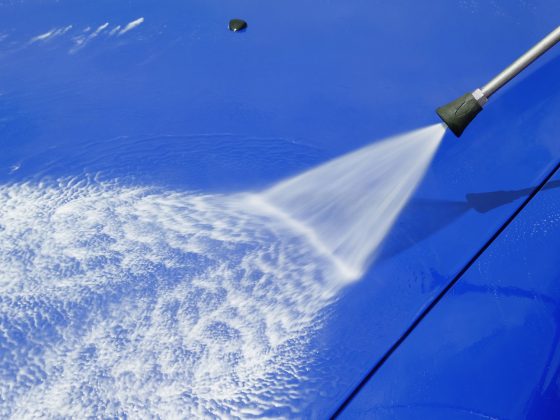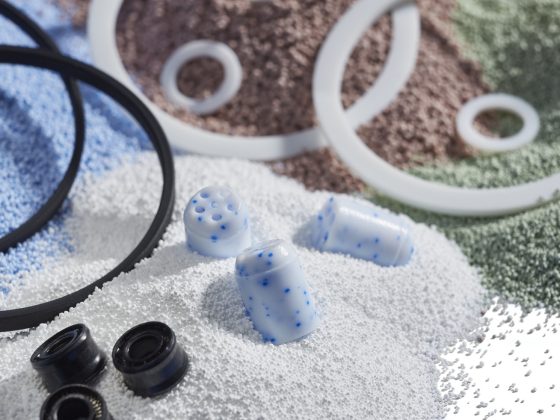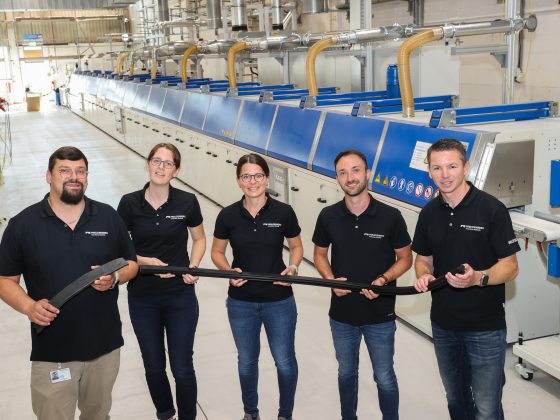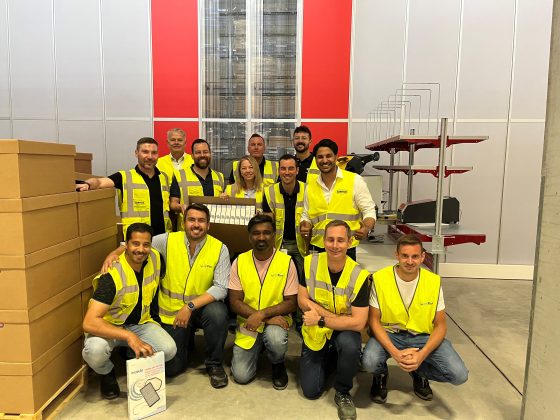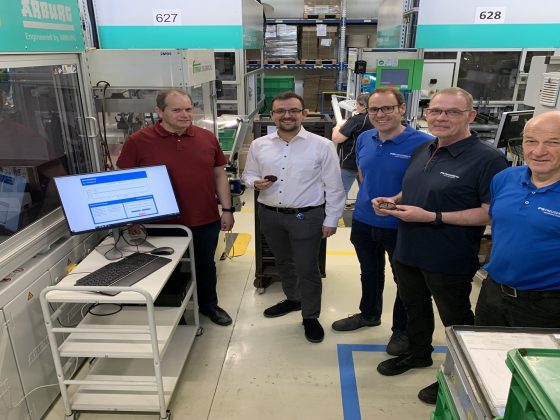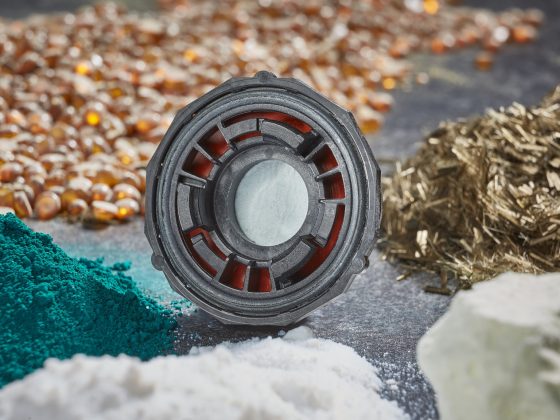“We’ve developed a forward-looking technology to reduce process costs. We would like to make these savings available to as many internal customers as possible,” said Steven Depper, Project Manager, ACDC, Weinheim Stamping Facility. The Oil Seals Industry Division and the Freudenberg Sealing Technologies (FST) Tool Shop in Laudenbach, Germany, partner up in the implementation of the project.
CDC stands for Automated Compound Die Changeover, the name for a new stamping cell concept that automates changeovers in the production of metal carrier parts for seals, and greatly shortens the process. The time frame has dropped to less than two minutes, only a fraction of the (unproductive) time previously required for changeovers (see Sealing World 03_2021)
This innovative process reveals its advantages the most clearly when small batches are produced, that is, when changeovers are required several times per shift. So for the first joint project, it was a logical step to work with the Oil Seals Industry Division, especially with the Czech facility Opatovice. At the plant, FST makes more than 5,000 different standard parts with extremely varied dimensions. In a great many cases, they are catalog products with comparatively small production runs.
Compared to the auto industry, relatively small volumes of a few hundred to a few thousand are the rule, especially in the case of catalog items. The volume per article also fluctuates tremendously each year. That means flexible production concepts across the entire process chain are required.
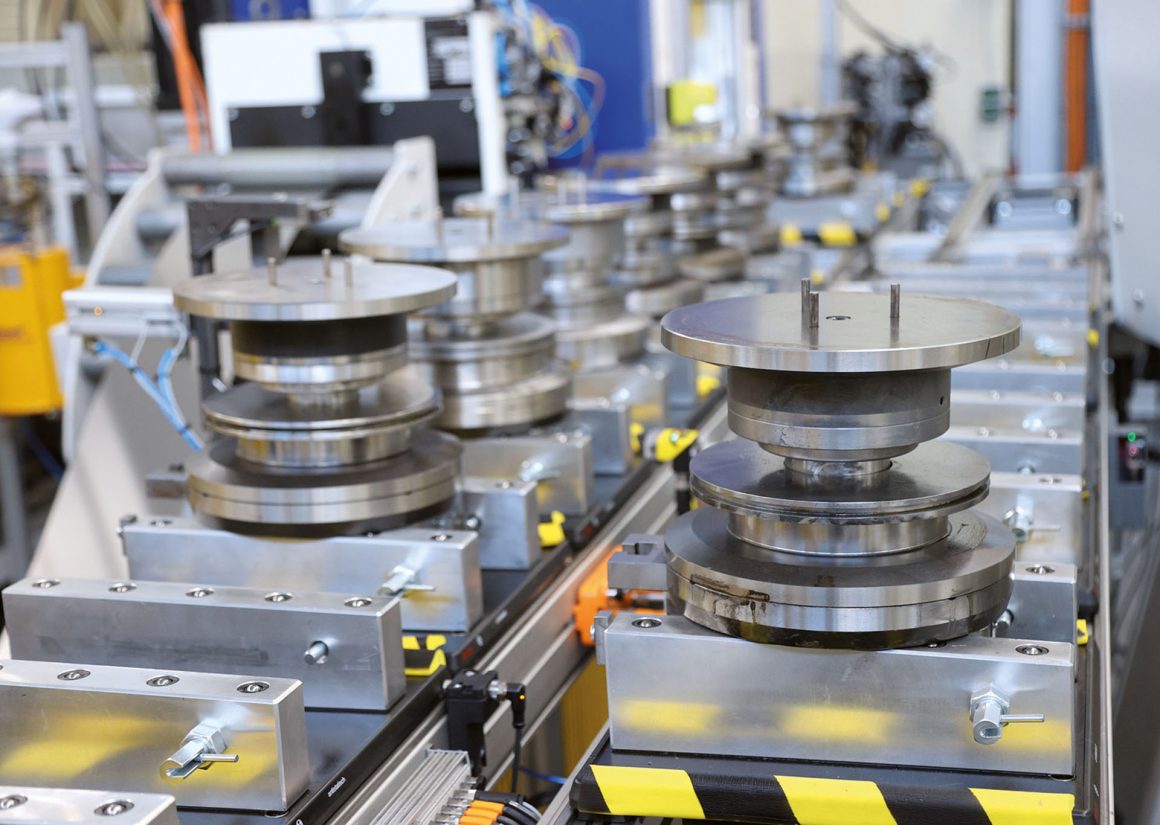
500 STANDARD PARTS
The project with Oil Seals Industry picked out about 500 of these standard parts. The majority of these Simmerrings® are produced in Opatovice, Czech Republic. By the fall of 2023, sheet metal for the first 500 items will be produced with the new technology in Weinheim, Germany. “The competition and price pressures for catalog items of this kind are massive in sealing technology. At the same time, sheet metal is the most important component influencing the competitiveness of our products. That’s why the efficient, flexible production of these preliminary products using ACDC technology is of great importance to us,” said Ondrej Michalec, Purchasing Manager in Opatovice, stressing the significance of the project to the Oil Seals Division’s Czech facility. It also means that Opatovice will be getting metal parts produced in uniform quality with uniform tools. The standardization simplifies the processing of the sheet metal.
Regarding the tools: ACDC sets new process standards and requires new tools based on a new tool standard. This is where the FST Tool Shop in Laudenbach comes into play. “It was years ago that we manufactured our last tools for the stamping plant,” said Marco Deuchert, Operations Manager, Tool Shop. He would much rather look ahead. The tool shop will produce all the stamping tools for the first major ACDC project. They represent a major order.
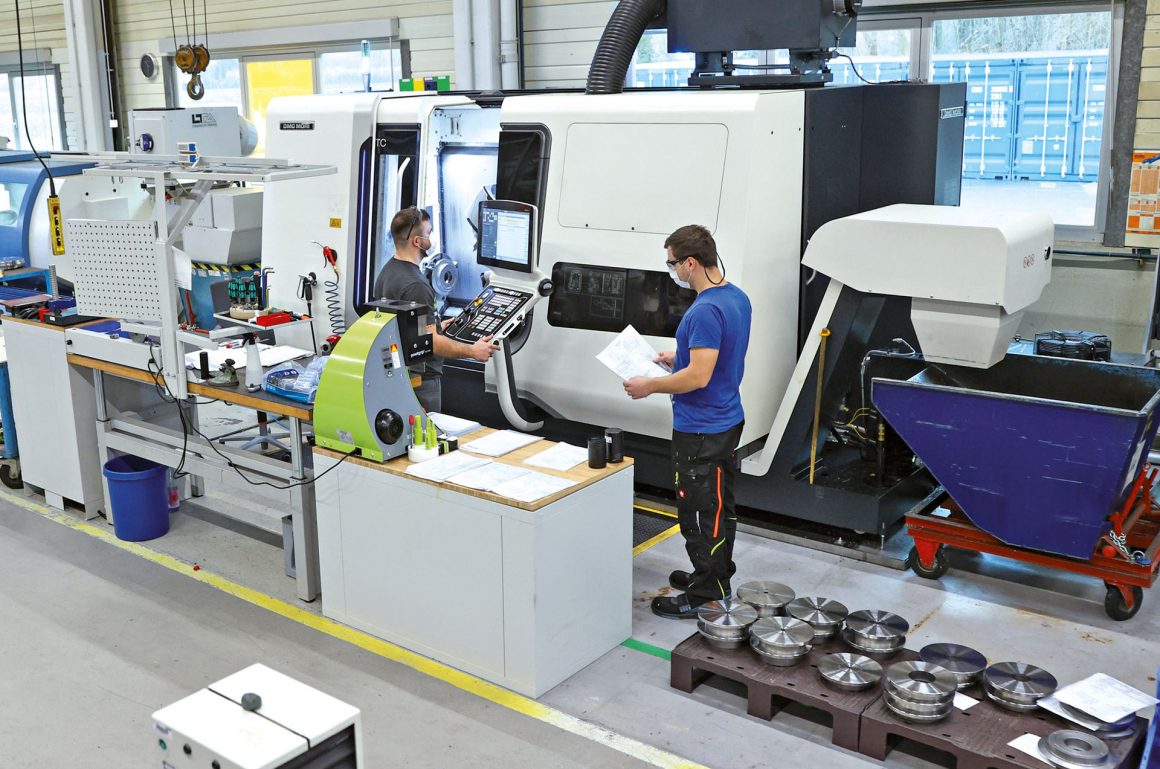
TOOLS FROM LAUDENBACH
Depper cited two reasons for the decision. “Thanks to the internal production of tools at Laudenbach, we are protecting our expertise in this new production technology. The Tool Shop also has proximity and the accompanying short distances in its favor,” he said.
Other pro-Laudenbach arguments are quality and price, Deuchert added. “The technical realities work to our advantage. We have put a modern, highly efficient milling and turning center into operation handles the turning and complete milling processes. About a year and a half ago, we also invested in new vacuum hardening equipment. It is a technological benchmark in the region. In our vacuum furnaces, we can thoroughly harden the tools and control the process using targeted structural influences, while avoiding volume changes or deliberately introducing them. That puts us in a position to offer higher quality at competitive costs and cut out the competition.”
The result is A1 quality. At the stamping facility in Weinheim, the so-called “try-out team” closely examined the tools from Laudenbach and integrated them for the first time into a press equipped with ACDC technology. “We only had to slightly rework the tools from Laudenbach. The quality of the geometries was right,” Depper said, pointing to positive interim results after the first batch. Deuchert said the goal was to complete an additional tool in Laudenbach each workday. “Thanks to standardized, semi-finished products, geometric similarity mapping and parallel production, we were able to reduce the throughput time from 10 to 1.5 days currently. So the target throughput time is within reach.”
In short, for each of the partners in the project, the issue is competitiveness. The Oil Seals Division can offer end-customers catalog items of higher quality at competitive prices. This works out because the internal suppliers – the tool shop and the stamping facility – are superior to the external stamping plants and tool-makers when it comes to quality and timing. They can also score points for their cost structures and prices thanks to highly advanced, automated technology such as ACDC, and lean methods applied to tool-making. “Finished Simmerrings® also have to withstand price competition. We achieve this with a high degree of automation and the steady, ongoing development of technology,” Depper said.
Incidentally, presses with the new ACDC technology are being automated at three FST sites: Langres, Bristol and Cleveland.


